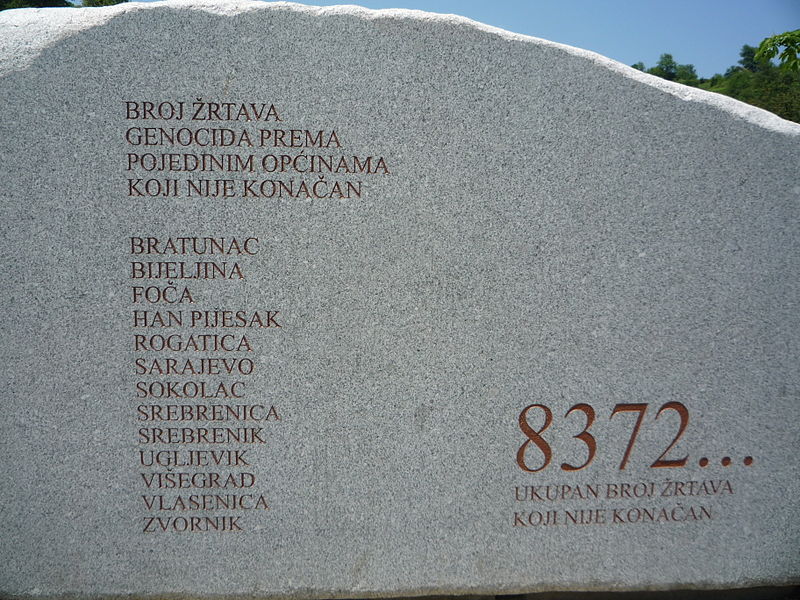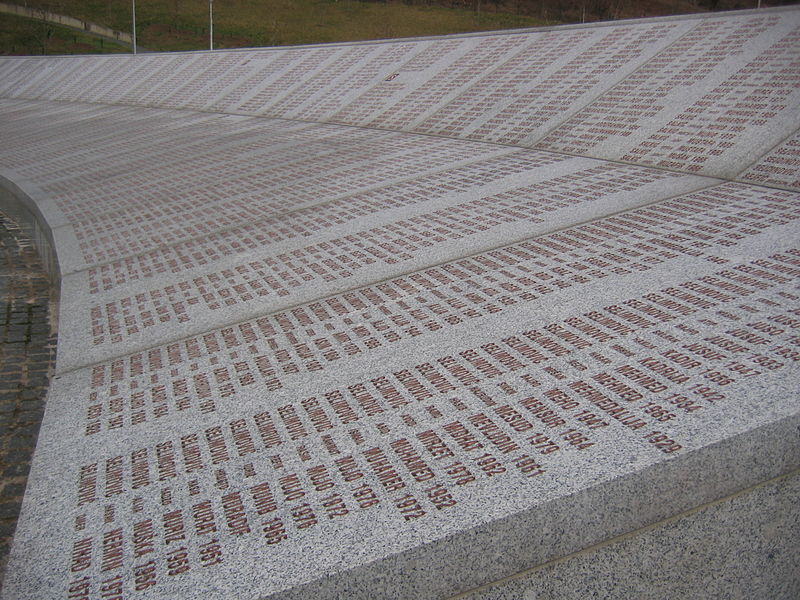Our calendars are filled with anniversaries. For the most part, they are dates set aside to celebrate or remember a specific event. They are also an opportunity to educate.

Thursday, July 11, 2013 is the eighteenth anniversary of the Fall of Srebrenica. On that day in 1995, the Bosnian Serb army invaded the town and subsequently murdered more than eight thousand men and boys. More than 6800 have since been positively identified through DNA and 5657 have been buried at the memorial site in Potocari (as of July, 2012). This week, four hundred more will be laid to rest in Potocari.
I recently wrote a post detailing one of the reasons why I wrote Braco, a novel that follows six people in the chaotic days after the Fall. In the post, I spoke about having sent food to a boy in Srebrenica when I was serving with the UN in Visoko. Not knowing what became of him drove me to write the book, as a way of answering, for myself, what may have become of him. I spoke to people about the idea, and almost without exception, the response I got was a blank face and the words “never heard of it.” Those that could at least connect the name with a mass murder knew little beyond that. None could identify the parties involved. Some didn’t even know there had been a war in Bosnia or that Canadian soldiers had been there.
George Santayana must be turning over in his grave.
To say the least, I was disturbed. Truly disturbed that thousands of people could be murdered in the heart of Europe only fifty years after the Second World War and the event go almost unnoticed by so many – that the lessons this event is meant to teach us can go unnoticed. Lessons about leadership, responsibility and simple human decency. Lessons about our complacency.

I served in Bosnia from October 1993 to April 1994 and I can look back now with 20/20 vision on a situation I wish I could have done more about. I take some small consolation that, on an individual basis, I may have helped some people whether it was giving a bag full of shampoo to a young civilian girl working at our camp or stuffing handfuls of Life Savers into a child’s pockets because she was too small to compete with the bigger kids for bon-bon.
Did it help? I don’t know.
So, I wrote Braco. I don’t know if it will help, but if nothing else, I am making the attempt to educate fellow North Americans, and maybe others, on this event. It doesn’t matter to me if one reads the book or only reads the back cover. It doesn’t matter to me if they google it just so long as they take the opportunity to learn.
If that is the case then I’ve accomplished what I set out to do.
“…that Srebrenica never happens again to no one and nowhere!”
Nicely written LA…
It’s hard to believe so few people remember it but as a history teacher I probably have a skewed perspective of what people remember. I would think, as I said in my review of your book, that more Canadians would remember because so many of our troops served there. I only spent 24 hours in what was then Yugoslavia in ’87 — but as many 24-hour periods are when you’re 21, it was weird and exciting and unforgettable — and almost my first thought when the Communist governments in Eastern Europe began falling was, “Oh good, now I can go back sometime and visit Yugoslavia and really see the country, now that it’s safer.” Of course that illusion was quickly shattered and I never have been back. Still wonder whatever became of the two good-looking young backpackers who acted as translators for my friend and me when we got put off the train in Ljubljana … probably nothing very good, given that they were young men in a country that would soon be torn apart by civil war. Thanks for writing the book.
Thanks Trudy, and thanks for the review! It is always nice to hear that the message is being heard. I was in Slovenia, Croatia and Montenegro last year. It was nice to see how well Croatia is doing now. Dubrovnik looks like nothing happened. And Ljubljana is an absolutely gorgeous city. I’m hoping to get up the nerve to visit Bosnia. It’s just now really opening up for tourism.